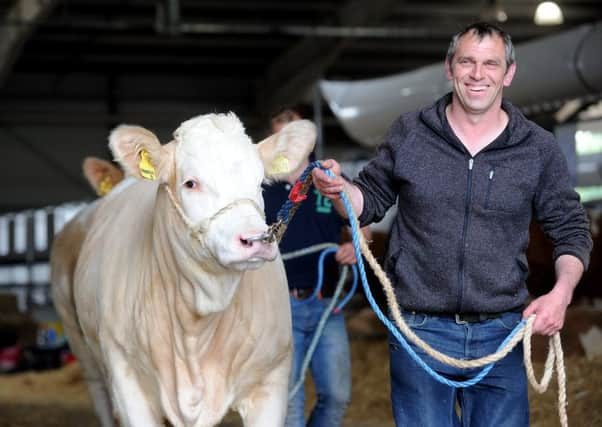Highland Show prepares to open under shadow of Brexit
This article contains affiliate links. We may earn a small commission on items purchased through this article, but that does not affect our editorial judgement.


With a host of political figures – ranging from the Scottish Government’s rural economy cabinet secretary Fergus Ewing to the UK government’s recently appointed environment, food and rural affairs secretary Michael Gove – attending the event, the industry will make the most of the opportunity to have its concerns heard.
Answers to these fears, however, might be thinner on the ground.
• READ MORE: Farming news
Advertisement
Hide AdAdvertisement
Hide AdAnd following yesterday’s revelation that Scotland’s world-famous meat industry could suffer not only from more difficult trading conditions but also from a viability-threatening shortage of labour to staff and inspect meat plants around the country, the country’s soft-fruit industry has highlighted similar concerns, claiming that losing access to European workers would have a “disastrous and cataclysmic” impact on the industry.
A report produced for the industry showed that with up to 95 per cent of pickers coming from European countries – mainly Bulgaria, Poland and Romania – any move to deprive the industry of its workforce would force berry prices to rise by more than 50 per cent and threaten many fruit farms with closure.
“Scotland has a thriving berry industry, growing some of the best berries in the world,” said one of Scotland’s leading growers, Lochy Porter.
Porter claimed there was no doubt that if the UK government put barriers in the way of the 12,000 migrant labour force working in the industry it would do considerable harm to farms across the region.
“Without migrant support, the Scottish berry industry would collapse and consumers would no longer find Scottish berries on their supermarket shelves,” he said.
However, the organisation that commissioned the report, British Summer Fruits, offered a solution to the problem: a seasonal agriculture permit scheme that would allow labourers from Europe to enter the UK on fixed-term contracts to fill the jobs which UK citizens shunned.
Advertisement
Hide AdAdvertisement
Hide AdThe group’s chairman, Laurence Olins, said that the seasonal agriculture workers scheme permit schemes had worked well for many years up until 2013 – and urged Gove to put his weight behind the proposal and initiate a scheme by 2018.